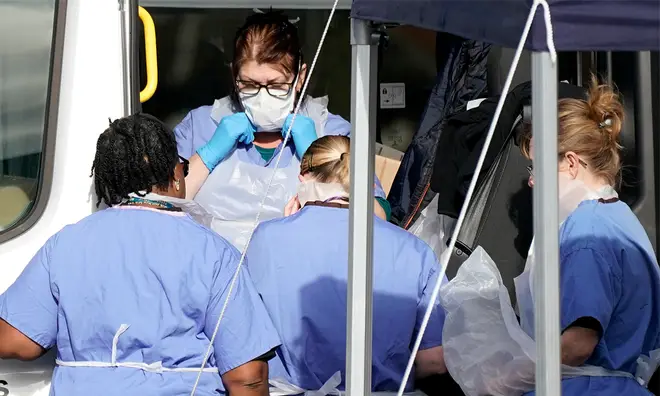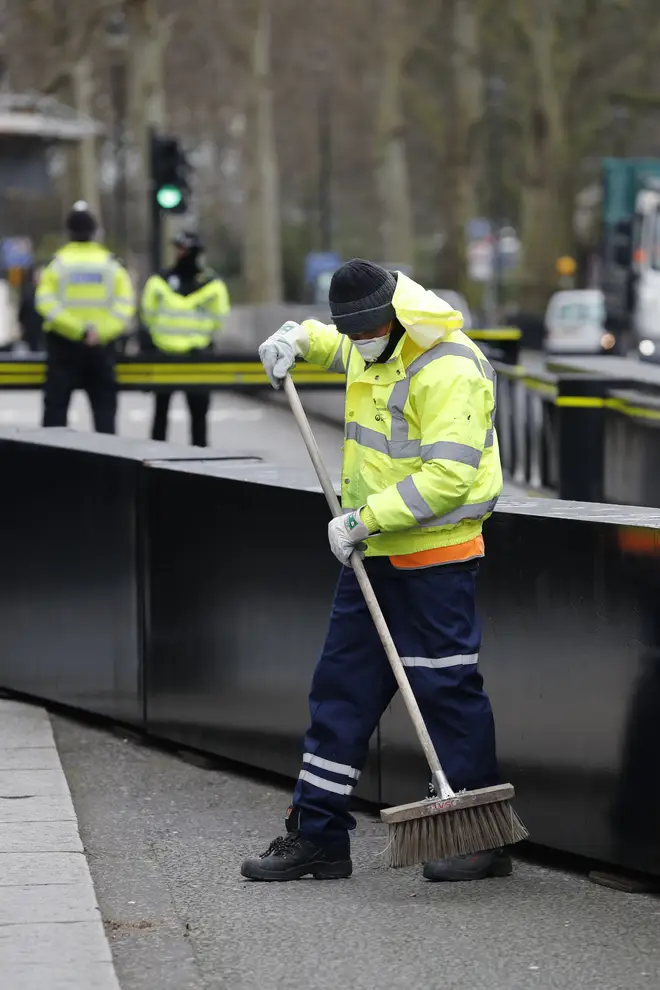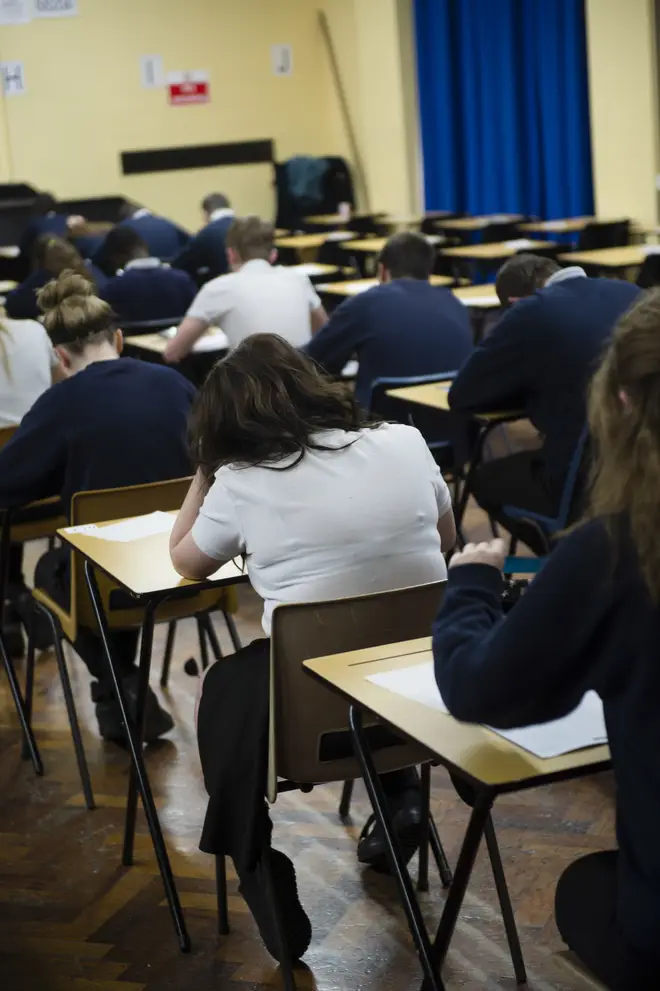On Air Now
The Capital Weekender with Meg McHugh 10pm - 1am
19 March 2020, 11:32 | Updated: 20 March 2020, 07:48

Which jobs class you as a 'key worker' as children of these people will still be able to attend school as government announce drastic measures to contain the spread of COVID-19.
As the government announces school closures for all children except those of key workers and the vulnerable amid the COVID-19 outbreak, people are wondering what jobs fall under this bracket and how they will be affected.
Four Happy News Stories That Have Nothing To Do With Coronavirus
Although it won't be announced until Thursday which occupations are considered 'key', it is widely accepted NHS and healthcare workers, teachers, emergency service workers and supermarket delivery drivers are amongst those crucial roles.
Education Secretary Gavin Williamson announced amid school closures, exceptions would be made for the children of key workers and children who are most vulnerable.
He said: "The scientific advice shows that the settings are safe for this small number of children attending."

The government has stated that the below sectors have been deemed critical, and workers in these areas will see their children priorities for education provision:
- Health and social care, such as doctors, nurses, midwives, paramedics, social workers, care workers, and other frontline health and social care staff including volunteers; the support and specialist staff required to maintain the UK’s health and social care sector; those working as part of the health and social care supply chain, including producers and distributers of medicines and medical and personal protective equipment.
- Education and childcare, such as nursery and teaching staff, social workers and those specialist education professionals who must remain active during the COVID-19 response to deliver this approach.
- Key public services, such as those essential to the running of the justice system, religious staff, charities and workers delivering key frontline services, those responsible for the management of the deceased, and journalists and broadcasters who are providing public service broadcasting.
- Local and national government, such as those administrative occupations essential to the effective delivery of the COVID-19 response or delivering essential public services such as the payment of benefits, including in government agencies and arms length bodies.
- Food and other necessary goods, such as those involved in food production, processing, distribution, sale and delivery as well as those essential to the provision of other key goods (for example hygienic and veterinary medicines).
- Public safety and national security, such as police and support staff, Ministry of Defence civilians, contractor and armed forces personnel (those critical to the delivery of key defence and national security outputs and essential to the response to the COVID-19 pandemic), fire and rescue service employees (including support staff), National Crime Agency staff, those maintaining border security, prison and probation staff and other national security roles, including those overseas.
- Transport, such as those who will keep the air, water, road and rail passenger and freight transport modes operating during the COVID-19 response, including those working on transport systems through which supply chains pass.
- Utilities, communication and financial services, such as staff needed for essential financial services provision (including but not limited to workers in banks, building societies and financial market infrastructure), the oil, gas, electricity and water sectors (including sewerage), information technology and data infrastructure sector and primary industry supplies to continue during the COVID-19 response, as well as key staff working in the civil nuclear, chemicals, telecommunications (including but not limited to network operations, field engineering, call centre staff, IT and data infrastructure, 999 and 111 critical services), postal services and delivery, payments providers and waste disposal sectors.
Prime Minister Boris Johnson is carrying out daily news conferences to update the nation on the latest developments on both the virus and the different measures being enforced to try and 'flatten the curve' of its spread.
Mr Johnson said in Wednesday's speech: "I can announce today that after schools shut their gates from Friday afternoon they will remain closed for most students, the vast majority of pupils, until further notice."
"The objective is ‘to slow the spread of the virus."
The PM also pledged to provide vouchers for children who receive free school meals.

Education secretary Gavin Williamson made a separate statement about the situation in the House of Commons earlier this afternoon.
He said: "The spike of the virus is increasing at a faster pace than anticipated."
The public health benefits of schools remaining open as normal are shifting."It's also clear that schools are finding it more difficult to continue as normal as illness and self-isolation impacts on staffing levels and pupil attendance."
After schools shut their gates on Friday afternoon, they will remain closed until further notice."
> Download Our App For All The Latest Coronavirus News